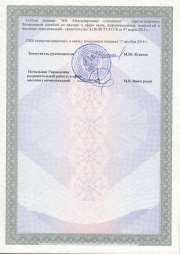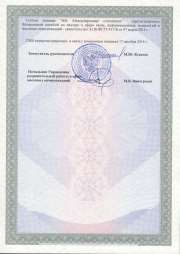|
MAIN PAGE
> Back to contents
World Politics
Reference:
Kleshchenko L.L.
Analytical Centers as an Element of BRICS "Soft Power" in Latin America
// World Politics.
2022. № 3.
P. 11-17.
DOI: 10.25136/2409-8671.2022.3.38697 EDN: TSLNRO URL: https://en.nbpublish.com/library_read_article.php?id=38697
Analytical Centers as an Element of BRICS "Soft Power" in Latin America
Kleshchenko Liudmila Leonidovna
ORCID: 0000-0002-4172-6583
PhD in Politics
Senior lecturer, Department of Political Science, The Herzen State Pedagogical University of Russia
191186, Russia, g. Saint Petersburg, nab. R. Moiki, 48, korp. 20, kab. 201

|
ludmila.popova2011@yandex.ru
|
|
 |
Other publications by this author
|
|
|
DOI: 10.25136/2409-8671.2022.3.38697
EDN: TSLNRO
Received:
01-09-2022
Published:
09-09-2022
Abstract:
The subject of this study is the policy of "soft power" of the BRICS in Latin America, including its tool such as analytical centers. The purpose of the study is to determine the specifics of the activities of BRICS analytical centers in the studied region and their political functions. The relevance of the topic is due to the growing importance of multilateral institutions in the modern world, which necessitates the study of their activities and mechanisms of influence, including the policy of "soft power". The prospects for the expansion of the BRICS due to the entry of new participants depend, among other things, on the image of this institution, which serves as an additional factor in the relevance of studying the policy of "soft power" of the BRICS and its results. Research method: document analysis. As a result of the study, it was found that an important impetus for the creation of the BRICS analytical center in Brazil is the diversity of the BRICS countries, which necessitates their mutual study. The activity of the BRICS analytical center is aimed at studying ways to solve global problems, studying the BRICS countries, the countries of the Global South and their interaction. In addition to research, the Center sees as a task the exchange of information between the research structures of the BRICS countries, the promotion of the BRICS agenda. The author comes to the conclusion that the policy of "soft power" of the BRICS in Latin America is at the stage of formation. One of its elements is the activity of the BRICS Research and Development Center, which performs research, organizational and informational functions.
Keywords:
BRICS, soft power, the image of BRICS, Latin America, Brazil, analytical center, think tank, global problems, Global South, international institutions
This article is automatically translated.
You can find original text of the article here.
In the period of restructuring the system of international relations based on the principles of multipolarity, the relevance of studying multilateral institutions, which in the future can form the basis of a new world order, is increasing. One of these institutions is the BRICS, an association of the world's largest developing economies. The BRICS countries currently include Brazil, Russia, India, China, and the Republic of South Africa. Meanwhile, the prospects for the expansion of BRICS are of interest both among researchers [1, 2] and in the media [3]. After the XIV BRICS summit held in June 2022, two countries — Argentina and Iran - applied for membership in this association. The prospects for the expansion of the BRICS due to the entry of new participants depend, among other things, on the image of this institution, which necessitates the study of the policy of "soft power" of the BRICS and its results. The positioning of the BRICS group countries was initially built around the idea of economic growth, the locomotive of which was the BRICS countries during the "golden decade". As the unification develops, positioning as an alternative to the unipolar world led by the United States comes to the fore, as well as anti-colonial rhetoric, commitment to the ideas of building a fairer, polycentric system of international relations, which makes the image of BRICS attractive to developing countries. A number of studies have been devoted to the problem of the image of the BRICS and the policy of "soft power" of the BRICS [4, 5]. There are also works whose subject is the image of the BRICS in various regions of the world [6]. The activities of BRICS, the history of unification, theoretical approaches to the interpretation of BRICS are studied by political scientists, economists, lawyers. At the same time, the image of the BRICS in Latin America, the policy of "soft power" of the BRICS and its component, such as the activities of analytical centers in Latin America, remain a little-studied issue, which determines the relevance of this study. In the terminology of the American political scientist J. Naya, Jr., "soft power" is a form of political power that presupposes the ability of someone to achieve the desired results from someone on the basis of voluntary participation, sympathy and attractiveness [7, P. 31]. It is the "soft power" that the researcher assigns a decisive role in modern world politics. The components of "soft power" can be educational and scientific activities, popularization of language and culture, values and institutions, environmental safety, consumer preferences (originally J. Nye considered only three components: political values, culture and foreign policy). With the help of these elements, a positive image of the state (or another actor in world politics) is created, which determines its ability to shape the agenda in the international arena. J. Nye was critical of the policy of "soft power" of Russia and China [8]. He saw the reasons for this in the fact that the most effective tool of "soft power" is not the state, but civil society. It should be noted that the author himself made the "soft power" of the United States the subject of his study, later the term began to be applied to other states. In states with a democratic regime, "soft power" is more effective due to the greater importance of public opinion [9, p. 22]. Existing international studies of "soft power" include the following parameters of this phenomenon: digitalization (digital diplomacy), culture (attractiveness of cultural achievements), economics (attractiveness of the economic model and ease of doing business), education (attractiveness for foreign students), engagement (involvement in global interactions), the quality of political institutions [10]. In modern political science, the "soft power" of a particular state is more often studied. At the same time, the tools of "soft power" can be used by other participants in international relations. International meetings in the BRIC format, which began in 2006, were held as part of four countries, in 2010 South Africa joined the association and its modern name was formed. The competence of the BRICS and the range of issues discussed at the meetings of the association is extremely wide and includes various aspects of existing global problems. According to the researchers, among the instruments of soft power, BRICS prefers financial and cultural, including education systems and the church [11, p. 60]. Among the significant symbols that increase the attractiveness of BRICS, they also highlight the history of the creation of the association (the abbreviation BRIC was first used in the media), criticism of Westernized globalization, membership of member countries to different civilizations, the desire to get away from the dictate of the dollar (the symbol of American hegemony) in international settlements [5, p. 512]. An important role in the positioning of the BRICS is played by the topic of combating global problems, including international financial and economic crises. At BRICS Summits, the idea of the unfairness/insufficiency of existing international financial institutions, their inability to counteract crises, is often voiced. Alternative financial institutions (the New BRICS Development Bank) were created within the framework of BRICS. The activities of the BRICS Development Bank are covered in Latin American media [12], as well as reflected in scientific publications [13]. One of the BRICS soft power institutes in Latin America is the analytical center "BRICS Research and Development Center" (Centro de Estudos e Pesquisas BRICS), created at the Institute of International Relations at the Pontifical Catholic University of Rio de Janeiro (PUC-Rio) in cooperation with the Pereira Passos Institute (IPP). The Center sees its mission in studying the BRICS countries, characterized by great diversity, in order to overcome obstacles to joint action. The subject of research at the Center is global problems and their consequences for the countries of the Global South, including research programs in the following areas: · The study of the BRICS proper (the reasons for the creation of the association, its history, documents, politics, economy and society of the BRICS countries);
· Urban studies (both cities of the BRICS countries and the Global South as a whole): investment attractiveness of cities, urban self-government, sustainable development, the problem of inequality in cities; · The Global South Mediation Group, specializing in the study of conflicts in the Global South: peace negotiations, mediation, peacemaking in modern conflicts are the focus of this direction; · Innovation and management of development programs, a direction that includes the study of the impact of scientific and technological development on international production and the world economy, the ability of STP to counteract asymmetry in this area; · Laboratory of Financing and International Cooperation for Development: the subject of study is the political and economic factors that determine the policy in the field of development of the Global South, including the intensification of relations between the countries of the Global South; · A socio-ecological platform focused on the study of global environmental governance, the international regulatory framework in the field of environmental protection, climate change, environmental and climate justice; · Security and development of the Global South: the study of security problems in Latin America and their impact on development policy, including such aspects of the topic as the militarization of public security, interregional practice in the field of security and development [14]. In addition to research, the Center sees as a task the exchange of information between the research structures of the BRICS countries, the promotion of the BRICS agenda, the development of cooperation with other analytical centers. In 2018, the BRICS Research and Development Center was recognized as the best analytical center in the Global Go To Think Tanks Index Report (according to the official website of the Center itself) [14]. The materials of the Center are published in Portuguese and English. The institution conducts educational, scientific events, places its own popular science and analytical materials in open access. In particular, in 2022, discussions were held on "BRICS, International conjuncture and Brazil's foreign policy: what to expect in the near future?", "The security crisis in Europe: Challenges and Opportunities for Multilateralism", "What's new in China's Cooperation and Investment Policy?", and a number of other events. Thus, the policy of "soft power" of the BRICS in Latin America is at the stage of formation. One of its elements is the activity of the BRICS Research and Development Center, which performs research, organizational and informational functions.
References
1. Astakhov, E.M. (2016) The place of BRICS in world politics. MGIMO Review of International Relations, 1(46), 42-50. URL: https://doi.org/10.24833/2071-8160-2016-1-46-42-50.
2. Lipovataya, M.S. (2018) Political forecasting of the development of the BRICS association, PhD thesis, M., P. 254.
3. BRICS Expansion: prospects for new foundations of international law. URL: https://rapsinews.ru/publications/20220628/308065677.html (accessed 30.02.2022).
4. Naumov, A.O. (2015) The "soft power" of the BRICS countries (on the example of Brazil and South Africa). World politics, 4, 27-40. DOI: 10.7256/2409-8671.2015.4.17025 URL: https://nbpublish.com/library_read_article.php?id=17025.
5. Kapitsyn, V.M. (2015) The "soft power" of the BRICS. Russia: trends and prospects of development, 10 (1), 510-513.
6. Bondarenko, D.M., Nk'jabonaki, Dzh. (2013) The formation of the image of BRICS in sub-Saharan Africa (on the example of Tanzania) In: BRICS — AFRIKA: partnership and interaction. M, 288-302.
7. Nye, J. (2004) Soft Power: The Means to Success in World Politics. NY, US: Public Affairs.
8. Nye, J. (2013) What China and Russia Don’t Get About Soft Power. 29 April. URL:http://www.foreignpolicy.com/articles/2013/04/29/what_china_and_russia_don_t_get_about_soft_power (accessed 30.02.2022).
9. Baranov, N.A. (2018) Soft power in the conditions of post-truth. Socio-political research, 1, 20-30.
10. What is Soft Power? URL: https://softpower30.com/what-is-soft-power/ (accessed 30.02.2022).
11. Sergunin, A., Gao, F. (2018) BRICS as the Subject of Study of International Relations Theory. International Organisations Research Journal, 13, 4, 55–73. DOI: 10.17323/1996-7845-2018-04-03.
12. New Brics Development Bank opens office in India. URL: https://www.cnnbrasil.com.br/business/novo-banco-de-desenvolvimento-dos-brics-abre-escritorio-na-india/ (accessed 30.02.2022).
13. Bueno, Elen (2019) BRICS, BASIC and The New Development Bank: environment, development and sustainability. Revista Direito Ambiental e Sociedade, 9, 115-141 doi = (10.18226/22370021.v9.n2.05).
14. The BRICS Policy Center. URL: https://bricspolicycenter.org/sobre/#o-brics-policy-center (accessed 30.02.2022).
Peer Review
Peer reviewers' evaluations remain confidential and are not disclosed to the public. Only external reviews, authorized for publication by the article's author(s), are made public. Typically, these final reviews are conducted after the manuscript's revision. Adhering to our double-blind review policy, the reviewer's identity is kept confidential.
The list of publisher reviewers can be found here.
The subject of the peer–reviewed study was the phenomenon of "soft power" in the BRICS policy in Latin America, and specifically the institutions of "think tanks" as elements of this policy. Unfortunately, the author of the article did not take the trouble to properly reflect on the methodology used in the research process. But from the context, it can be understood that in addition to traditional general scientific analytical methods, the method of conceptual analysis was used (when assessing the heuristic potential of J. Nye's concept), content analysis (when studying the program documents of the BRICS Research and Development Center), as well as institutional analysis of specific organizational forms of the BRICS. The theoretical basis was the concept of J. Nye. Proposed by the American political scientist Joseph Nye back in the 80s, the term "soft power" ("soft power", "soft power") became widely popular in the journalistic and scientific literature devoted to the analysis of problems of world politics and international relations. Despite the fact that the phenomenon of non-forceful influence on partners and opponents analyzed by J. Nye himself was well known and repeatedly analyzed long before J. Nye's research. For example, in Marxism – Antonio Gramsci, and before him – the Chinese Taoists), the term introduced by J. Nye turned out to be in great demand due to the growing popularity of soft technologies in world politics in recent decades. Therefore, it must be admitted that the relevance of the topic chosen by the author of the reviewed article is quite high, at least in two aspects: - in theory (in terms of clarifying and developing the concept of "soft power") and - in application (in terms of expanding the practice of using soft technologies in the world of modern politics). At the same time, the author's attempt to link the topic of "soft power" with two other very relevant topics today – the think tanks institutes (as research and/or analytical institutions that have a significant impact on the specific content of the policy) and the BRICS group (in June 2022 renewed research interest in connection with the announced expansion to include Argentina and Iran, as well as the prospect of Turkey, Egypt and Saudi Arabia joining the organization). Based on the results of the analysis, the author managed to obtain results with signs of scientific novelty. First of all, we can talk about clarifying the concept of "soft power" by describing such an element of "soft" impact technologies as expert and analytical centers ("think tanks") using the example of the "BRICS Research and Development Center" at the Institute of International Relations at the Pontifical Catholic University of Rio de Janeiro. In addition, the analysis of soft technologies used in BRICS politics is of particular interest, as well as the author's conclusion that these technologies in Latin America are at the stage of formation, but have high development potential. Structurally, the article is quite consistent and logical. In the conditional text, an introduction and conclusion can be distinguished, as well as the main part, which, in turn, is divided into two subsections – a conceptual analysis of the concept of "soft power" in the scientific literature and an institutional analysis of the BRICS. Stylistically, the article also makes a positive impression: it is written in good language, competently, with the correct use of scientific terminology. The bibliography includes 14 titles, including works in foreign languages, and sufficiently represents the state of affairs in the field under study. An appeal to opponents takes place when discussing the conceptual content of the concept of "soft power". Among the disadvantages of the article, one can only indicate the author's laconicism and excessive conciseness: without an annotation and keywords, but with a bibliographic list, the text of the article is only 10,991 characters (with spaces). However, this drawback cannot be considered significant: the requirements for articles in the World Politics magazine specify a recommended volume of 12,000 characters (https://nbpublish.com/e_wi/info_106.html ), and with an annotation and keywords, the text volume will certainly exceed the required minimum. GENERAL CONCLUSION: the article submitted for review can be qualified as a scientific work that meets all the basic requirements for works of this kind. The topic chosen by the author corresponds to the theme of the magazine "World Politics". The results obtained in the course of the research will be of interest to political scientists, sociologists, specialists in the field of public administration, world politics and international relations, as well as students of these specialties. According to the results of the review, the article is recommended for publication.
Link to this article
You can simply select and copy link from below text field.
|
|





